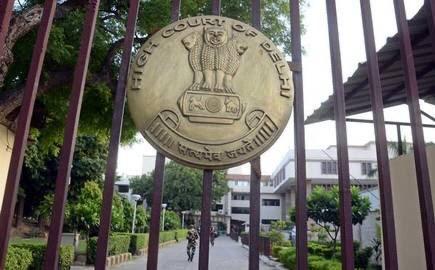The Delhi High Court has said it is most unacceptable that the testing facilities of the private laboratories are not being used to their optimum capacity, though they have not expressed any hesitation in ramping up the number of testing.
A bench of Justice Hima Kohli and Justice Subramonium Prasad has took note of the fact that number of COVID-19 cases in Delhi have shot up to 47,102, and directed Committee constituted by LG to address various issues raised by Private laboratories relating to COVID 19 Tests.
The Court has been informed by the Delhi Government standing counsel that under the directions of the Lieutenant Governor, Delhi, a Committee has been constituted on 12.06.2020, to advice the DDMA on various aspects of COVID-19, comprising of several experts including Mr. Krishna Vatsa and Mr. Kamal Kishore, Members of the National Disaster Management Authority, Mr. Balram Bhargav, Director General, ICRMR, Dr. Randeep Guleria, Director, AIIMS, Dr. Ravindran, Additional DDG, Directorate General of Health Services and Dr. Sujit Kumar Singh, Director, NCDC.
Advocate Satyakam,the additional standing counsel Delhi Government, informed the court that the number of public laboratories equipped to undertake COVID-19 tests have been increased from 17 to 18 and for the private laboratories, from 23 to 25 in number. Public and private sector laboratories have now been ramped up to collectively undertake 10,700 tests per day, as against the previous capacity of 8,600 tests per day. Besides, as recommended by the ICMR, on 14.06.2020, Delhi is going to undertake Point of care rapid antigen detection test that will quickly augment testing capacity in various containment zones and health facilities.
The Court has enquired from the learned ASC as to the number of tests that are actually undertaken on a daily basis, as against the capacity of 10,700 tests per day, mentioned in the affidavit. He states that he does not have the exact figure.
“As per the updation on the website of Delhi Government, testing on a daily basis is not more than 7000, which means that the available capacity of 3700 is not being utilized, which is most unacceptable. The conclusion is that the testing facilities of the private laboratories are not being used to their optimum capacity, though they have not expressed any hesitation in ramping up the number of testing,” said the court in its order.
The Court was hearing a plea filed by Advocate Rakesh Malhotra, who alleged the state government was not taking expeditious steps to furnish test reports within a reasonable time of 48 hours or even earlier due to which contact tracing was getting delayed and the infection was multiplying rapidly.
The bench on the previous occasion has issued issue notice to all the 23 private laboratories directing them to state whether they are being permitted to undertake tests for suspected COVID-19 cases by adopting the RT-PCR test or the CB-NAAT test. The private laboratories were also directed to point out if any difficulties were being faced by them on account of bureaucratic red-tapism.
12 of the 23 Private laboratories had filed their affidavits highlighting the problems being faced by them in conducting CPOVID 19 tests.
One of the prominent issues that have been flagged by the private laboratories is that they are being made to undertake a cumbersome process of contemporaneously uploading patient registration forms on the RT-PCR App, the COVID App, the ICMR Portal and the Integrated Disease Surveillance Portal linked to the office of Chief Minister, Delhi Government thereby wasting valuable time and diverting their energies from the testing process.
The second grievance raised is that the private laboratories are being told to define patient categories through the Phlebotomists who are required to go on site to collect the samples, when they are not equipped/ trained for the said purpose which takes a time of half an hour.
The third issue highlighted by the private laboratories is that for being authorized to collect samples, all the Phlebotomists are required to be registered in the given Districts by applying to the District Magistrate/District Commissioner and there is a duplication in the said process thereby hindering the work of collecting the samples and curtailing the number of Phlebotomists who would otherwise be available to collect the samples.
The fourth difficulty expressed by the private laboratories relates to the insistence on the part of NABL that even those private laboratories that are already accredited by it, must seek re-accreditation for undertaking the COVID19 test which it is stated, is not required in the current emergent situation where the entire focus of the private laboratories ought to be on undertaking maximum tests and submitting timely reports. In any case authorization in this regard is to be given by the ICMR.
A fifth aspect highlighted by the private laboratories is that some of the symptoms of COVID-19 like loss of smell and taste do not find mention in the advisory for testing or in the forms that are required to be filled up by the Phlebotomist, leading to some confusion. This aspect would need a response from the ICMR.
The Private laboratories have also come up with several suggestion like the Delhi Government be called upon to make available locations where the private laboratories can set up their testing facilities for collecting the samples so that that time spent on sending Phlebotomists to the residence of the suspected cases, can be saved. Further the number of the testing kits vendors identified by the Delhi Government, may be increased in proportion to the tests required to be undertaken.
The bench has directed the Delhi Government to file the decision taken by the committee before June 20.
The matter has been listed for next hearing on June 22.
-India Legal Bureau


